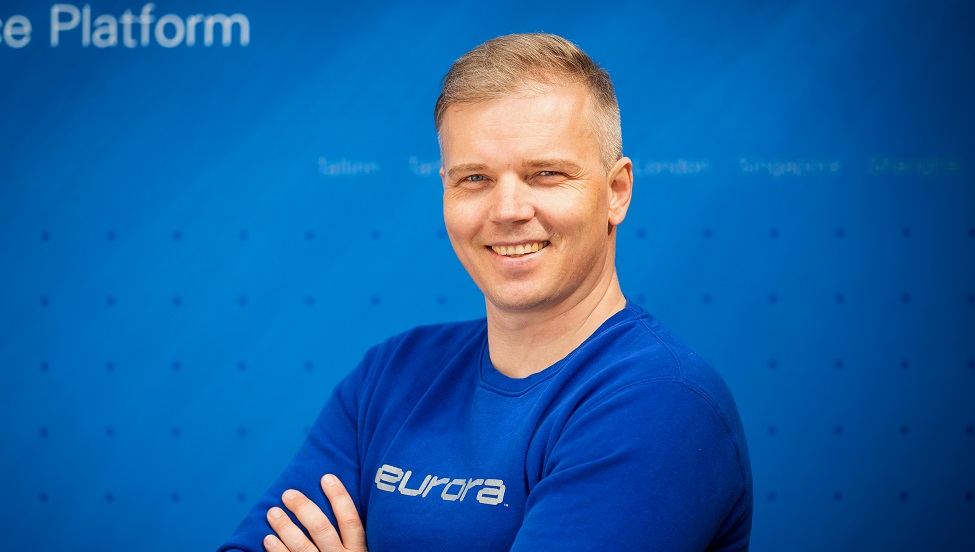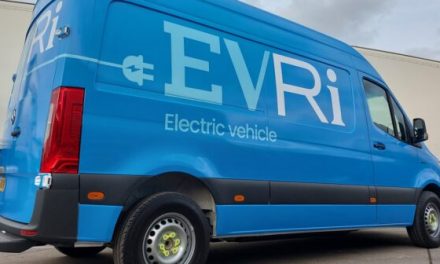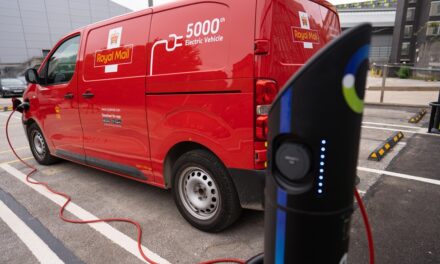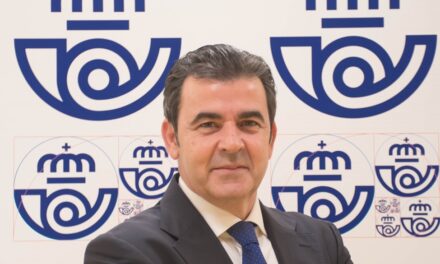
Taking the struggle out of compliance

Post & Parcel speaks to Egon Veermae, COO of Eurora, the Estonian company helping the sector to manage the regulatory landscape.
What does Eurora offer the sector?
We’ve developed some incredibly advanced machine learning technology to manage cross-border taxes, goods descriptions, and electronic declarations. The aim is to digitise the entire process so you don’t need to have any manpower behind the scenes.
How was Eurora set up?
Eurora was founded in 2019. It started a little bit differently to most start-ups as our machine learning and artificial intelligence solutions were developed by two technical universities – TalTech, STACC (STACC Research and development organisation, aimed at conducting high-level applied research in the field of data science, and machine learning and StatLab (A spin-off company of the University of Tartu), who were working together to develop machine learning to solve cross-border trade complex compliance issues globally and handle enormous data. The aim was to enable stakeholders to reduce costs and deliver goods quickly and smoothly.
What is your background?
I have been with Eurora almost two years, but before that I worked for 15 years in Tax and Customs and Social Insurance for 5 years for the Estonian government. One of my roles was to modernise systems and services for the administrations – making services easier, quicker and more intuitive is something I’ve always been interested in.
How and why did you get involved with Eurora?
I was introduced to Eurora through an acquaintance and the company’s offering suited my background and experience. Although it may seem different to what I was doing before, I have been using IT to modernise organisations and service throughout my career and this is in essence, what Eurora is doing for cross-border trade. Also, I have good knowledge about tax and customs that often comes in handy!
As for the why I got involved with Eurora? It is unique. If you look at different start-ups, they have all created something new. But at Eurora we believe we are two or three years ahead of everyone. Machine learning and artificial intelligence is the new way of doing things – I am quite certain of that.
How digitalised is Estonia?
Our country has a strong approach to digitalisation and the government has been leading this digital movement since the late 1990’s so now it is really quite normal for us. To give some context, Estonia gained independence in 1991 and since then we have strived to be forward-thinking. The government has become really good at creating seamless e-services which reduce the cost of public administration.
To show you how digital Estonians are, every year on 14 February the portal for individuals to declare their taxes opens, and within the first hour, at least half of the nation has made their declarations because 90% of people do it electronically on an app on their phones. Of course, we still have offline accessible services, but these are used by the minority. The key is that the government made the public feel confident about the system and now they trust it and use it instinctively.
How important is customer satisfaction to Eurora?
Our whole business model is customer-focused. We operate globally and our customers range from multinationals to small SMEs but in all cases we want our customers to feel confident in the products we have created. We build the systems so they are seamless and easy to integrate, and we offer lots of support so that customers can easily reach us if they do not understand something.
How has Eurora grown?
Initially our company was a small one, funded by university grants but then we got financing as well as grants from the European Commission and over a short time period the team has grown quite rapidly.
To start with we only had presence in Estonia but now we have offices round the world for example in China, Delhi, Singapore, in Miami and in London and of course in Europe – in the Netherlands, in Belgium, Spain and soon there will be offices in Germany and France.
This year more than 160 people have joined Eurora all over the world. We have multiplied more than 10 x in one year and next year we predict similar growth.
How does Eurora’s growth make you feel?
It is indescribable! When I joined Eurora everyone was in one building on the same floor – you could literally see and talk to everyone. But now what I love is that we have people from more than 15 nationalities working for us, speaking in 20 different languages around the world! I really enjoy experiencing different approaches and learning from each other. We are really lucky to have a team that is eager to do, learn, change and deliver – it is really unique.
What are the perks of being a successful start-up?
I love that we are in the position to give back to society. For example, we have good cooperation with an IT school in Eastern Estonia to enable us to see how the science and coding becomes a real product that is used in the business.
We have also opened our Innovation and Research Centre in the university city of Tartu. We are investing in both people who will understand logistics, tax and customs in addition to investing in artificial intelligence and scientific work.
What do you hope to achieve with the Innovation Centre?
There is a lot of scientific work behind our products so it makes sense to have our own innovation centre to develop our AI and machine learning technologies and work on the new products we would like to bring to market. We are also using it as a base to collaborate with universities across the world and further our research.
You had a very successful financial round in April, why do you think investors are attracted to Eurora?
Firstly e-commerce and cross border trade is growing and growing and COVID changed consumer behaviour massively so the demand is very much there. Also our investors see there is a huge potential to fully automate the process. I also think investors like that Eurora isn’t just focused on one market – we have ambitious plans to cover the whole world. Finally I think our approach is different as we are very much focused on machine learning, data and artificial intelligence – these are areas people want to invest in as it is the future.
In terms of development what is next for Eurora?
The regulatory landscape is changing and we want to help companies navigate those changes. Many of our customers are big multinational companies facing different regulatory issues in different regions. For example we have new regulations in Europe regarding e-commerce – the Import Control System 2 [ICS2] and of course Brexit, and we have also seen the same thing is happening in Asia. For example in Singapore from 1 January 2023 there are new regulations coming in so we are building on the solution we already made for Europe. We have a local team in Singapore who are developing specific solutions in time for the regulations to come in, in January.
How can you help the sector to navigate the cross-border changes?
What are we selling to our customer is: if you join with us, with one integration, you don’t need to worry anymore. It sounds simple but it is actually true because regulations are constantly changing and our systems are constantly learning and adapting. The machines can understand your data, allocate the right codes and understand the export rules for different markets. We are helping sellers to send goods to Europe or Asia, we can calculate the tax and also help with fiscal representation.
What are you aims for the next 12 months?
We want to strengthen our market prescience in the countries we are already operating and we want to broaden our reach. We are keen to expand into Africa and want a stronger presence in North America, the Middle East and Asia. As I mentioned we will start working with Singapore in 2023 and we are also working with some companies in the Philippines and creating a special product for them.
Why did Eurora recently join the UPU?
Up until now we have focussed on working with e-commerce companies but we see there is great potential in working with different postal operators. The UPU is opening up to IT companies and we decided to invest in the membership as we have a very strong IT development team in house and are looking forward to creating some unique products to propose to UPU members using our machine learning.
 Eurora is going to be hosting WMX Europe in June 2023 – what do you want people to learn about the company?
Eurora is going to be hosting WMX Europe in June 2023 – what do you want people to learn about the company?
Firstly people don’t often know where Estonia is so I’d like to introduce them to the country. I want to show people our lovely capital Tallin – both the modern part and the beautiful UNESCO old town. I also want to show them that we are not just another Eastern European country we are very much an IT country. I want to show them what great services our country provides and that Estonia is very entrepreneurial and has a big start-up community – in fact Estonia has the most unicorns per capita in the world including Skype, Bolt and Wise.
The people who come to WMX Europe are looking for new and different solutions and we want to make connections. Eurora’s offices are close to the airport and so we want to invite some partners to visit our offices and see in person what we are doing. Finally we want to show our hospitality – the conference is a really good opportunity for us and we want people to remember Estonia in a warm way.












